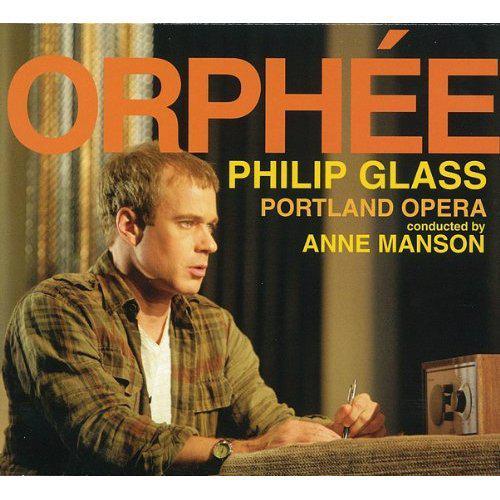
Orphee (Portland Opera)
Nipping Down to Hell With Philip Glass By ANTHONY TOMMASINI IN 1993 I attended the premiere of Philip Glass s opera Orphée at the American Repertory Theater in Cambridge, Mass., and was unimpressed. The production, by Francesca Zambello, was striking, and the gifted singing actors gave their all. But the work did not cohere stylistically, and Mr. Glass s score seemed automatic-pilot Minimalism. In 2007 at the Glimmerglass Opera I heard Orphée again, this time in a modern, sleek production by Sam Helfrich, with the conductor Anne Manson drawing an urgent and nuanced account of the score from the excellent orchestra and a compelling cast. This time, 14 years after my first hearing, I was swept away by Orphée. I have come to consider it among Mr. Glass s most inspired works. The Glimmerglass production was presented last year at the Portland Opera in Oregon, with Ms. Manson conducting and many singers from the Glimmerglass cast. An excellent recording, taken from a live performance in Portland, has just been released by Orange Mountain Music (OMM 0068; two CDs), the first recording of the complete work. Given the distinguished heritage of operas based on the myth of Orpheus, going back to Monteverdi, a composer today might hesitate to add another. But Mr. Glass s opera is distinctive, a homage to Cocteau s surreal 1949 film Orphée, which sets the tale in modern times and stars Jean Marais in the title role. Cocteau s Orphée is a famous, wealthy and petulant poet shaken by a creative crisis. His recent poems are just rip-offs of cryptic announcements sputtering from his radio. Sullen and frustrated, he lives unhappily in a posh apartment with his wife, Eurydice. But he has become intrigued by a mysterious Princess, actually Death in disguise, accompanied by her ominous and devoted chauffeur, Heurtebise. For his French libretto Mr. Glass simply trimmed and adapted the Cocteau screenplay. At times the vocal writing is merely pitched speech. Yet in closely following the contours and flow of the French, the repetitive riffs and structures in Mr. Glass s music give the story a mythic, ritualized aura. In scenes depicting Parisian nightlife Mr. Glass folds honky-tonk and jazzy bits into the score. But the opera touches the profound when Orphée, drawn more by the alluring Princess than by any compelling desire to rescue his dead wife, passes through a mirrored wall in his apartment to enter the Underworld. Here the music is charged with ancient modal harmonies and, for Mr. Glass, uncommonly intense emotional richness. He wrote this work in 1991, the year his third wife, Candy Jernigan, a multimedia artist, died of cancer. Surely this loss affected his retelling of the myth. The score has flaws, including vocal parts that push the singers into their high ranges for long stretches. And there are passages of needlessly awkward instrumental writing, with woodwinds, for example, asked to play breathless repetitive motifs. The orchestration sometimes lacks clarity. Yet the vibrant Ms. Manson works effectively to bring transparency and balance to the orchestra, without loss of plush colors and harmonic intensity. Despite their sometimes audible struggles with high-set passages, the singers give engrossing performances, especially the leads: the charismatic baritone Philip Cutlip as Orphée and the lustrous soprano Lisa Saffer as the Princess. The soprano Georgia Jarman as Eurydice and the tenor Ryan MacPherson as Heurtebise are also strong. And the tenor Steven Brennfleck is a standout as the poet Cégeste, Orphée s young rival and the new darling of the critics, who is killed by motorcyclists, actually henchmen of the Princess, in a supposed accident. Nothing is what it seems in this mythic modern opera. --New York Times, August 1, 2010
